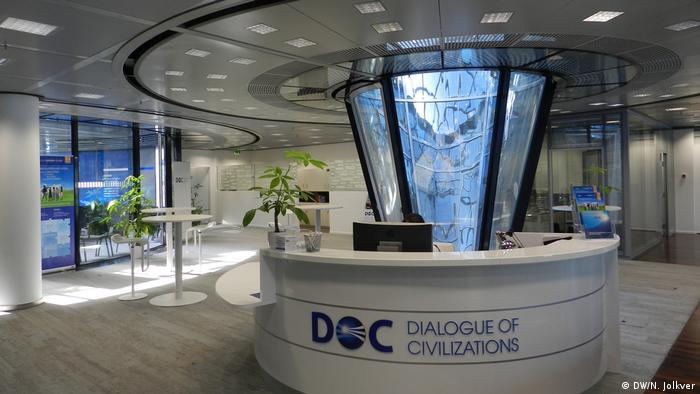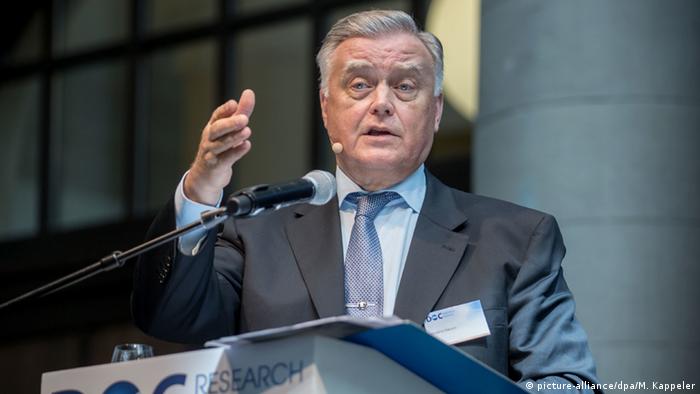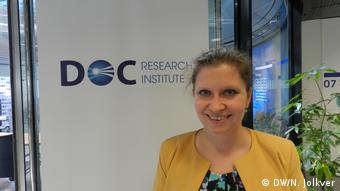For the past two years, there is the Institute “dialogue of civilizations” in Berlin. It was founded by the former Russian railway-in-chief and Putin Confidant Vladimir Yakunin. What is the Institute?

If Vladimir Yakunin had not been in the German Consulate in Moscow has seen, would probably know no one that he now has a work and residence permit in Germany. Maybe hardly anyone would have remembered Jakunins research Institute “dialogue of civilizations” (DOC) that he holds for two years in Berlin near the Brandenburg gate in the building of the “Galeries Lafayette”.
The Echo in the German press on the opening of the Institute in the year 2016 was negative. Because of the former Russian Railways boss Yakunin, is attributed to the inner circle of President Vladimir Putin, was able to escape the Russia-EU sanctions, but the American will not. Many doubt that Yakunin has acquired his fortune honestly.

Vladimir Yakunin, the founding event of the Institute “dialogue of civilizations” in July 2016
Who is funding the “dialogue of civilizations”?
The DOC is funded by a Swiss based Foundation. The two most important donors Yakunin and the Russian businessman and philanthropist Ruben Vardanian. How much do you donate to the Institute, could not or did not want to tell the press spokesperson for the DOC, Agnieszka Rzepka, compared to the DW.
According to the annual report to 2017, published on the English Version of the website of the Institute, the budget of the DOC from grants from foundations, companies and wealthy people together. The donors are not mentioned by name – only the amounts. So projects have been received for events and research in the year 2017 a total of 2,302 million Euro. The non-earmarked resources amounted to EUR 2,316 million and “other revenue” on 54.909 Euro.
The experts who work for the DOC?
Agnieszka Rzepka said the DW, the DOC have offices in Moscow and in Vienna, with a total of 42 employees. In Berlin, there were 18 persons from different countries. Five scientists and two would take care of contacts with EU structures, and various German and foreign foundations.
According to the website Klemens Witte is an example of the solid German employees. He had acquired experience abroad at the universities of Kazan, Moscow, Kaliningrad, Minsk and Beijing. In 2011 and 2012, he lectured on the media at the Institute for International relations in Moscow, the cadre for the Russian foreign Ministry.
The DOC also has a network of experts who work on a fee basis, including the Journalist Thomas Fasbender and the political scientist Alexander Rahr. Both are considered Kremlin-friendly experts. You speak good Russian, which makes them frequent guests in the Russian media. 2014 Fasbenders book “freedom instead of democracy: Russia’s way, and the illusions of the West”. Rahr is currently the Europe-Advisor to the Russian energy company Gazprom, is the author of a whole series of books about Russia, Putin and Moscow’s relationship with the West.
There are collaborations with other institutions?

Press Spokeswoman Agnieszka Rzepka
So far, the DOC, in cooperation with other research institutes in Berlin. Agnieszka Rzepka regrets. Compared to the DW, the spokesperson stressed that the DOC always think of the dialogue, but on the other hand, the interest in it was poor.
The center for East European and international studies (ZOiS) you can’t remember. The Director of the center, Gwendolyn Sasse, said the DW, you have paid the DOC a visit to the ZOiS. “In terms of the DOC, I can only say that we invite from the ZOiS from employees of the DOC to our events. If anyone ever came, I don’t know,” says Sasse.
Also Stefan Meister, a Russia expert at the German society for foreign policy (DGAP), told DW that there had been no direct request for cooperation. He stressed that he personally had no contact with the DOC.
Look at the world through the Russian Prism?
On the Russian Version of the website of the DOC and the reports of conferences and studies are available. The English Version of the content is broader. Most of the time it comes to Religion, civilization, Migration, and other topics. Also, the contributions of German experts are in English, which suggests that the Institute sees its target audience is not in Russia but in the West. When looking at the texts, no theories to fall but that could be interpreted as elements of a Propaganda of the Kremlin.
Also Stefan Meister recognizes in the publications of any Pro-Kremlin line. “It is not an Instrument, the effect achieved and the political and social influence,” he said of the Institute. The reason: “you don’t have to bring all sorts of people from many different countries, occur regularly, the really relevant for the Discus in Berlin,” says the expert. According to him, there is also a management problem within the institution. The policy of the current leadership is not working in the German environment.